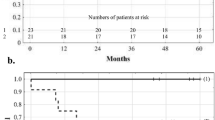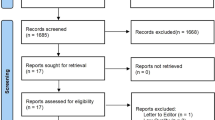Abstract
Preclinical evidence suggests that gut microbiome regulation may prove to be a new therapeutic target for treating postoperative infection in liver transplant recipients. This review aims to evaluate the most current evidence for the efficacy of probiotics supplementation on postoperative prognosis. The registered through the International prospective register of systematic reviews as CRD42020170379. We searched PubMed, Embase, and Cochrane Library databases for studies published from 1 Jan 1963 to 31 May 2021. The quality of included studies was assessed using the Cochrane risk of bias tool. Study heterogeneity was assessed with the Cochrane Q test and I2 statistic. We applied leave-one-out sensitivity analysis to assess the effect of every single study on the heterogeneity and pooled effect size. Egger’s test and observation of funnel plots were used to detecting small-study effects and publication bias. A total of five studies, including 290 patients, were enrolled in the final analysis. Probiotics supplementation resulted in a beneficial outcome both in postoperative infection (RR = 0.199, 95%CI: 0.105 ~ 0.377, p = 0.000), the duration of antibiotic therapy (WMD = 3.031, 95%CI: − 5.905 ~ − 0.157, p = 0.039), and the length of hospital stay (SMD = − 0.274, 95%CI: − 0.530 ~ − 0.018, p = 0.036). The main effective infection types were urinary tract infection (RR = 0.176, 95%CI: 0.063 ~ 0.496, p = 0.001) and intraabdominal infection (RR = 0.225, 95%CI: 0.084 ~ 0.607, p = 0.003), but not pneumonia infection (RR = 0.301, 95%CI: 0.076 ~ 1.203, p = 0.089). There were no statistically significant differences for the intensive care unit stay (WMD = − 0.752, 95%CI: − 1.819 ~ − 0.315, p = 0.167) and postoperative mortality (RR = 0.794, 95%CI: 0.210 ~ 3.008, p = 0.734) in the two groups. Probiotics supplementation as an effective assistant treatment for reducing postoperative infection rates, the duration of antibiotic therapy, and the length of hospital stay after liver transplantation has application prospects.




Similar content being viewed by others
References
Rude MK, Watson R, Crippin JS (2014) Recurrent hepatic epithelioid hemangioendothelioma after orthotopic liver transplantation. Hepatol 59(5):2050–2052
Li C et al (2012) Analysis of infections in the first 3-month after living donor liver transplantation. World J Gastroenterol 18(16):1975–1980
Knihs NDS et al (2020) Complications Following Liver Transplant at a Teaching Hospital. Transplant Proc 52(5):1354–1359
Kim SI (2014) Bacterial infection after liver transplantation. World J Gastroenterol 20(20):6211–6220
Emre SSA, Chodoff L, Boccagni P, Meyers B, Sheiner PA, Mor E, Guy SR, Atillasoy E, Schwartz ME, Miller CM (1999) Selective decontamination of the digestive tract helps prevent bacterial infections in the early postoperative period after liver transplant. Mt Sinai J Med 66(5–6):310–3
Modi SR et al (2013) Antibiotic treatment expands the resistance reservoir and ecological network of the phage metagenome. Nature 499(7457):219–222
Hellinger WCYJ, Alvarez S, Blair JE, Cawley JJ, Paya CV, ÓBrien PC, Spivey JR, Dickson RC, Harnois DM, Douglas DD, Hughes CB, Nguyen JH, Mulligan DC, Steers JL (2002) A randomized, prospective, double-blinded evaluation of selective bowel decontamination in liver transplantation. Transplantation 27(12):1904–9
Xiao JPZ, Liao Y, Sun H, Chen W, Chen X, Wei Z, Yang C, Nüssler AK, Liu J, Yang W (2018) Organ transplantation and gut microbiota: current reviews and future challenges. Am J Transl Res 15(11):3330–3344
Wu ZW, L.Z., Lu HF, Zuo J, Sheng JF, Zheng SS, Li LJ 2012 Changes of gut bacteria and immune parameters in liver transplant recipients. Hepatobiliary Pancreat Dis Int (1) 40–50.
DBT., I.C.o.M.R.T.F.C.-o.U.I.C.-o.U 2011 ICMR-DBT guidelines for evaluation of probiotics in food. Indian J Med Res (1) 22–5.
Rayes N, S.D., Hansen S, Boucsein K, Müller AR, Serke S, Bengmark S, Neuhaus P 2002 Early enteral supply of lactobacillus and fiber versus selective bowel decontamination: a controlled trial in liver transplant recipients. Transplantation (1) 123–7.
Rayes N et al (2005) Supply of pre- and probiotics reduces bacterial infection rates after liver transplantation–a randomized, double-blind trial. Am J Transplant 5(1):125–130
Eguchi S, T.M., Hidaka M, Soyama A, Ichikawa T, Kanematsu T 2011 Perioperative synbiotic treatment to prevent infectious complications in patients after elective living donor liver transplantation: a prospective randomized study. Am J Surg (4) 498–502.
Grąt M, W.K., Lewandowski Z, Grąt K, Krasnodębski M, Stypułkowski J, Hołówko W, Masior Ł, Kosińska I, Wasilewicz M, Raszeja-Wyszomirska J, Rejowski S, Bik E, Patkowski W, Krawczyk M 2017 Effects of continuous use of probiotics before liver transplantation: a randomized, double-blind, placebo-controlled trial. . Clin Nutr. (6) 1530–1539.
Page MJ et al (2021) PRISMA 2020 explanation and elaboration: updated guidance and exemplars for reporting systematic reviews. BMJ 372:n160
Zhang Y et al (2013) Probiotic use in preventing postoperative infection in liver transplant patients. Hepatobiliary Surg Nutr 2(3):142–147
Jorgenson MR, D.J., Siodlak M, Tjugum S, Rice JP, Fernandez LA 2018 Efficacy and safety of probiotics and synbiotics in liver transplantation. Pharmacotherapy (7) 758–768.
Sawas TAHS., Hernaez R, Carey WD, Cho WK 2015 Patients receiving prebiotics and probiotics before liver transplantation develop fewer infections than controls: a systematic review and meta-analysis. . Clin Gastroenterol Hepatol (9) 1567–74.e3.
Lu H et al (2013) Assessment of microbiome variation during the perioperative period in liver transplant patients: a retrospective analysis. Microb Ecol 65(3):781–791
Kato K et al (2017) Longitudinal analysis of the intestinal microbiota in liver transplantation. Transplant Direct 3(4):e144
Ren ZGLH., Jiang JW, Jiang L, Chen H, Xie HY, Zhou L, Zheng SS 2011 Protective effect of probiotics on intestinal barrier function in malnourished rats after liver transplantation. Hepatobiliary Pancreat Dis Int (5) 489–96.
Xing HCLL., Xu KJ, Shen T, Chen YB, Sheng JF, Chen Y, Fu SZ, Chen CL, Wang JG, Yan D, Dai FW, Zheng SS 2006 Protective role of supplement with foreign Bifidobacterium and Lactobacillus in experimental hepatic ischemia-reperfusion injury. J Gastroenterol Hepatol (4): p. 647–56.
Karlsson M, S.N., Khalaf H, Olsson PE, Jass J 2012 Substances released from probiotic Lactobacillus rhamnosus GR-1 potentiate NF-κB activity in Escherichia coli-stimulated urinary bladder cells. FEMS Immunol Med Microbiol (2) 147–56.
Lytvyn L et al (2016) Probiotics and synbiotics for the prevention of postoperative infections following abdominal surgery: a systematic review and meta-analysis of randomized controlled trials. J Hosp Infect 92(2):130–139
Angarita SAK, Russell TA, Kaldas FM (2017) Pneumonia after liver transplantation. Curr Opin Organ Transplant 22(4):328–335
Johnston BC, G.J., Vandvik PO, Sun X, Guyatt GH 2011 Probiotics for the prevention of pediatric antibiotic-associated diarrhea. Cochrane Database Syst Rev (11) CD004827.
Goldenberg JZ, Mertz D, Johnston BC (2018) Probiotics to prevent Clostridium difficile infection in patients receiving antibiotics. JAMA 320(5):499–500
Acknowledgements
All authors have made substantive contributions to the manuscript.
Author information
Authors and Affiliations
Contributions
JinShuang Xu and YuShuang Xu contributed significantly to analysis and manuscript preparation; Yu Song helped perform the analysis with constructive discussions.
Corresponding author
Ethics declarations
Ethics Approval
This article does not contain any studies with human participants or animals performed by any of the authors.
Competing Interests
The authors declare no competing interests.
Additional information
Publisher’s Note
Springer Nature remains neutral with regard to jurisdictional claims in published maps and institutional affiliations.
Supplementary Information
Below is the link to the electronic supplementary material.
Rights and permissions
About this article
Cite this article
Xu, J., Xu, Y. & Song, Y. Efficacy of Probiotics Supplementation on the Prognosis of Patients After Liver Transplantation: a Systematic Review and Meta-analysis. Indian J Surg 84 (Suppl 2), 409–417 (2022). https://doi.org/10.1007/s12262-022-03318-2
Received:
Accepted:
Published:
Issue Date:
DOI: https://doi.org/10.1007/s12262-022-03318-2




